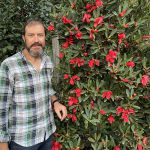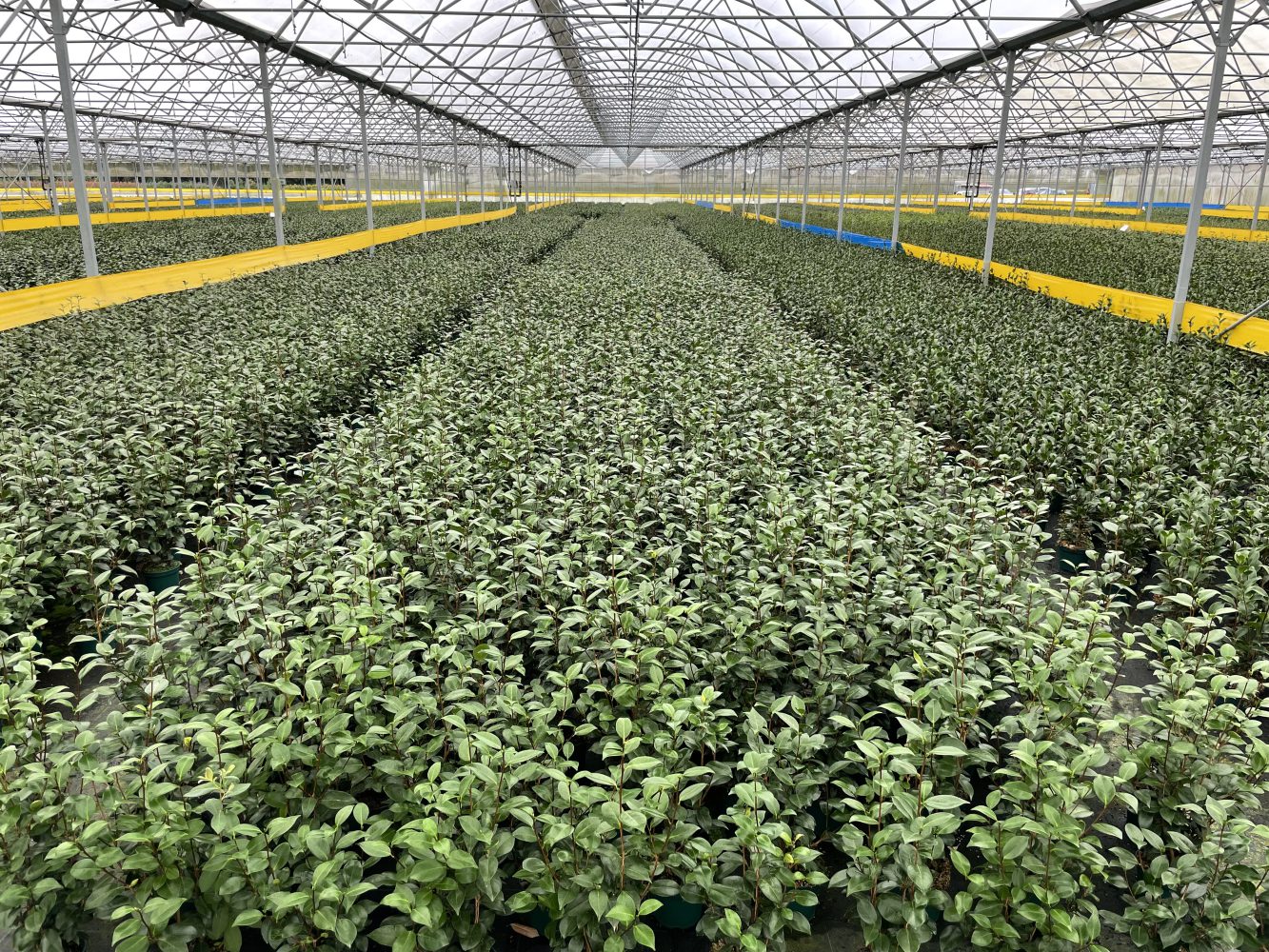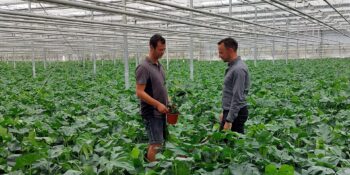The mission of Viveiros Rio Tollo, when it was founded in 1999, was to develop a sustainable agricultural project in the region of Baixo Miño, south of the province of Pontevedra, Spain. By being faithful to their values, they were maintaining a solid and constant growth, based on the development of equipment and people, in quality, in the diversification of production, in collaborative work, focused to all levels of the company in meeting the needs of their customers. “We strive every day to maintain this confidence, guaranteeing them the best professional service of attention, advice, availability and logistics,” says José Collazo, Agricultural Technical Engineer and founding partner of Viveiros Rio Tollo.
The company produces Camellia (currently the main crop, with more than 200 varieties in production), Rhododendron, Azaleas, Hydrangeas, Magnolias, among others, and has coexistence and integration with the environment as a priority. They elaborate annual action plans based on a constant analysis of critical points, with action plans in the short and medium term. They produce plants based on criteria of good agricultural practices, analyse the usage of all inputs, waste, impacts, occupational safety and environmental. Their goal is to achieve good profitable productions, generating the least impact on the environment and, for them, this translates into “business, environmental, social responsibility”, in short: “sustainability”. MPS-ABC allows them to measure what they are using and they are able to compare it year by year.

José Collazo, Agricultural Technical Engineer and founding partner of Viveiros Rio Tollo
Starting with MPS-ABC in 2013, their reason to begin with environmental certification was being one of the first solid, internationally recognised certifications in their sector. Nowadays, MPS-ABC helps them achieve their sustainability goals and move forward in a positive way, improve everything they do every day. Also, they want to provide their customers with proof to support what they do and how they do it, to acquire new knowledge and to be able to compare themselves with others. Collazo: “Not maintaining a certification would be like taking steps back and that does not fit into our company”. Their sustainability efforts include optimisation/rationalisation of water usage, production of clean energy for self-consumption, crop monitoring techniques, development of IPM protocols adapted for Integrated Pest Management, inventories of local beneficial flora and fauna and the creation of insect shelter zones.
According to Collazo, sustainability becomes more and more important in the Spanish ornamental sector. “We observe that year after year it is increasing, due to the awareness of the companies themselves, due to the demands of the markets, but also by the consumers who increasingly demand sustainable productions”. Therefore, he encourages other companies to start with environmental certification and would like to see the most skeptical putting themselves on the client’s side. “When you are making decisions, the best ones are always those that the client values and needs, if not to say, to improve the reputation of our sector, and to have our companies as up-to-date and modern as possible, so that we are more attractive in order to attract the attention of new talent and future generations of workers. It is never too late to start. In the beginning, it might be a little bit challenging, but in the end it is definitely worth it.”



